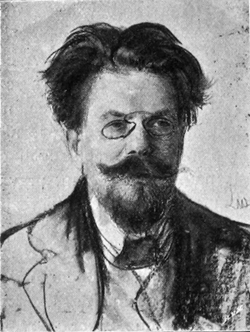Persons, originating from Poland
Władysław Reymont
 Born: May 17, 1867 in Kobiele Wielkie, Petrokov Governorate, Congress Poland
Born: May 17, 1867 in Kobiele Wielkie, Petrokov Governorate, Congress PolandDied: December 5, 1926 in Warsaw
Born as Stanisław Władysław Rejment. He changed his surname during his publishing debut, to protect him from any potential trouble for having already published a work not allowed under the Tsar's censorship.
He was a Polish novelist and the 1924 laureate of the Nobel Prize in Literature. His best-known work is the award-winning four-volume novel Chłopi (The Peasants). Reymont's literary output includes about 30 extensive volumes of prose. There are works of reportage like Pielgrzymka do Jasnej Góry (Pilgrimage to Jasna Góra) (1894), and some sketches from the collection Za frontem (Beyond the Front) (1919). There are numerous short stories on life in the theatre, village life or work on the railway: "Śmierć" ("Death") (1893) and "Suka" ("Bitch") (1894). He wrote also novels: Komediantka, Fermenty, Ziemia obiecana, Chłopi, Wampir (The Vampire) (1911), and a trilogy. Reymont's last book, Bunt (Revolt), published in 1924, describes a revolt by animals which take over their farm in order to introduce "equality". The revolt quickly degenerates into abuse and bloody terror. The story was a metaphor for the Bolshevik Revolution of 1917 and was banned 1945–1989 in communist Poland, along with George Orwell's similar novella, Animal Farm (published in Britain in 1945). It is unknown whether Orwell knew of Reymont's Revolt of over two decades earlier.
In November 1924 he was awarded the Nobel Prize for Literature over rivals Thomas Mann, Maxim Gorky and Thomas Hardy. However, Reymont could not take part in the award ceremony in Sweden im 1925 due to a heart illness. He died in Warsaw in December 1925 and was buried in the Powązki Cemetery. The urn holding his heart was laid in a pillar of the Holy Cross Church in Warsaw.
More information
Polonica stamps:
|
Paraguay 1977, 07 VI |